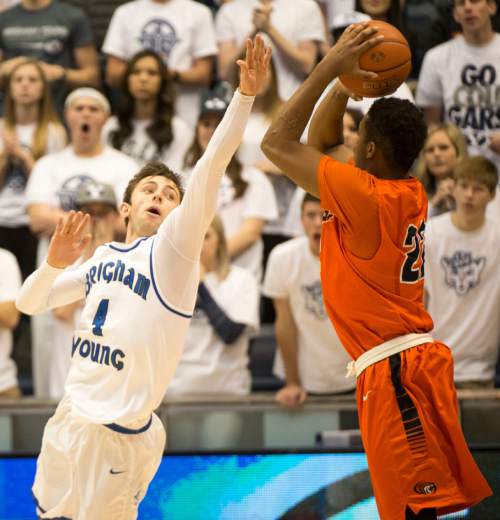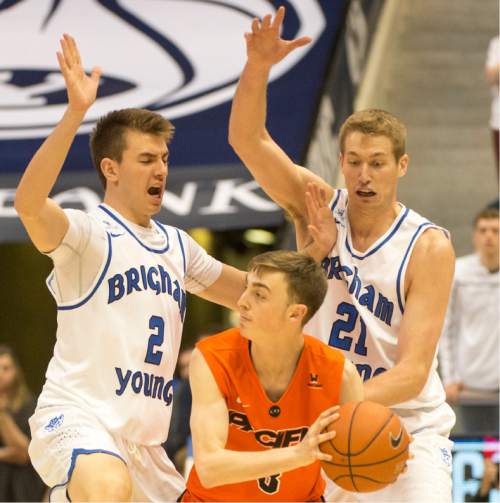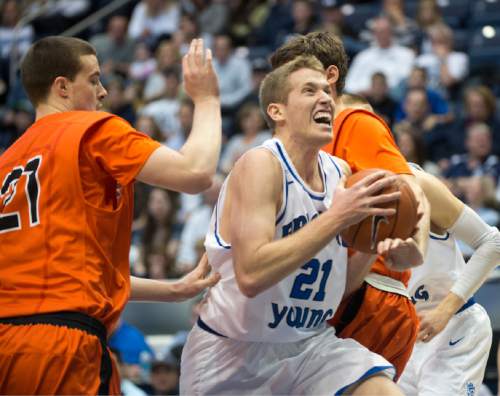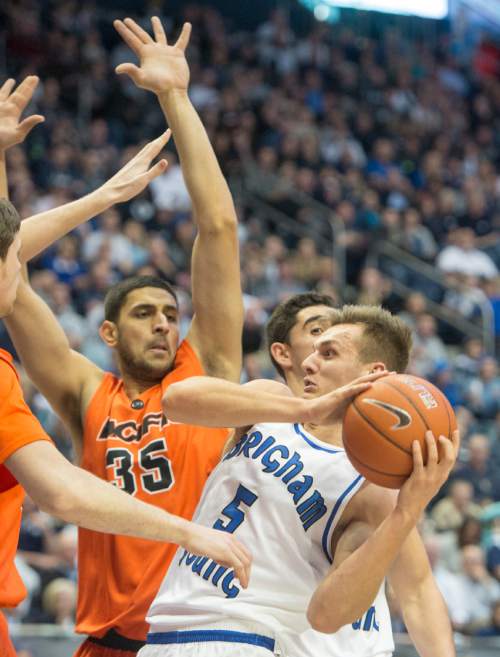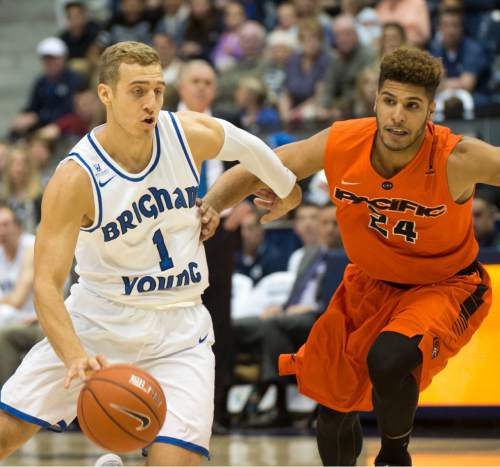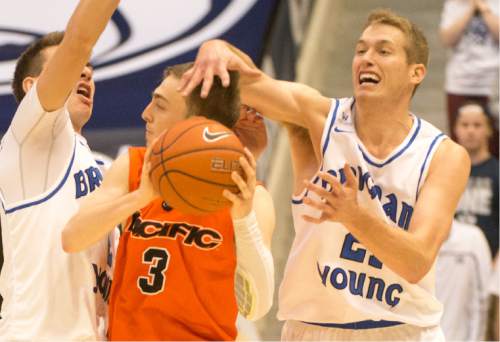This is an archived article that was published on sltrib.com in 2016, and information in the article may be outdated. It is provided only for personal research purposes and may not be reprinted.
Provo • In the midst of the outright despondency that emitted from BYU players and even coach Dave Rose after Saturday's stunning 77-72 loss to a Pacific team that entered the February game having won just four games against Division I opponents, senior guard Chase Fischer became the voice of reason, after some coaxing.
"I think we need to realize it is not the end of the season," Fischer said. "It is a devastating loss. It hurts. I know it hurts everyone in that locker room. It is tough, but it is not the end of the world."
Clearly, though, it is the end of BYU's hopes of getting an at-large bid to the NCAA Tournament. It could be argued that it was the most damaging loss in the Rose era, seeing as how it came at home against a team whose RPI was just north of 250.
The Cougars (17-8, 8-4 West Coast Conference) will need to win the WCC tournament to make the Big Dance for the ninth time in Rose's 11 years at the helm. They haven't won a conference tournament since 2001, when Steve Cleveland was the coach, but there's reason for hope this year because the Cougars have already defeated the other four teams at the top of the standings — Gonzaga, Saint Mary's, Pepperdine and San Francisco.
They can play well at times, but they are wildly inconsistent.
Those are the two words most often used to describe the 2015-16 Cougars. They beat league-leading Gonzaga on the road and Saint Mary's handily at home, but lost to Portland and Pacific. Go figure.
"We still have some games to play, and there is some stuff that can still happen in this conference, but we've got some stuff to work on," Fischer said. "I think we need to re-evaluate ourselves, get back to work, and stay positive next week and look forward to two road games. It is not going to be easy next week, so we just gotta pick ourselves up and get back out there."
In a nutshell, the Cougars lose when they don't shoot the ball well, largely because their halfcourt offense is unreliable and fails to produce easy shots. Kyle Davis has emerged as the low-post scorer that was lacking last year, but the USU transfer is a bit undersized and tends to struggle against bigger opponents. He was BYU's best player Saturday, scoring 21 points on 8-for-11 shooting in 26 minutes, but his 5-for-10 performance at the free-throw line proved costly.
In their four WCC losses to date, the Cougars shot 33 percent against Pacific, 36 percent at Pepperdine, 38 percent at Portland and 41 percent at Saint Mary's.
"It is going to be hard to win games shooting 33 percent from the field," Rose said.
Especially on the road, where BYU's next three games will take place.
Up next is the second Bay Area road swing, at San Francisco on Thursday and Santa Clara on Saturday.
Those two clubs met Saturday night a few hours after Pacific sent BYU reeling, and USF prevailed 89-86 in overtime to improve to 6-6 in WCC play, 13-10 overall. Santa Clara dropped to 4-8 and 8-16.
Devin Watson, the kind of lightning-quick point guard that always gives BYU fits, had a game-high 24 points for the Dons and defensive specialist Uche Ofoegbu held Santa Clara's high-scoring Jared Brownridge to one first-half point, 18 in the game.
The Dons, who were pelted 86-48 at Gonzaga (a 69-66 winner over Pepperdine) a week ago, will be looking to avenge that 102-92 loss at BYU last month and are surely emboldened by the fact that the Cougars couldn't even beat lowly Pacific at home.
Twitter: @drewjay —
BYU at San Francisco
P Thursday, 8 p.m. MST
TV • BYUtv


